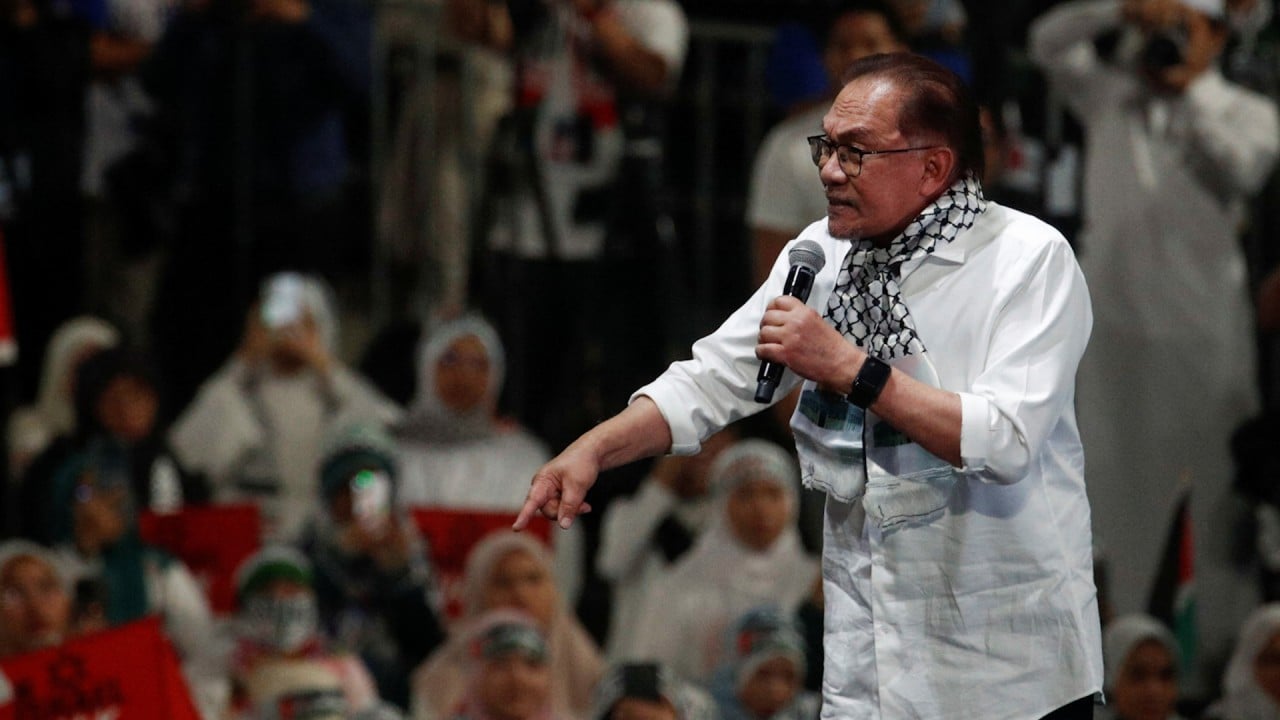Continued government endorsement of the militant organisation’s narrative without condemning its terrorist violence against Israeli citizens risks fuelling radicalisation among Malaysian youth and children. In October, during Malaysia’s Palestinian Solidarity Week, some teachers and students wore Palestinian keffiyehs and held toy guns, apparently emulating Hamas’ armed resistance against Israel. Following condemnation by activists, Anwar announced increased controls on such activities during state-led programmes.
Despite calls for calm and reducing inter-religious tensions, the Jewish community of Indonesia lives in fear. This situation is unsurprising in a country that does not recognise Judaism as a religion as a result of which Jews feel forced to use Christianity in their identity documents.
Another case is that of Pakistan, where Muslims make up more than 96 per cent of the country’s 240 million people. A recent Gallup survey revealed that 91 per cent of Pakistani respondents sympathised with the Palestinians of Gaza, with just 2 per cent sympathising with Israel.
Despite expressions of concern by caretaker prime minister Anwaar-ul-Haq Kakar and the foreign office about the escalating violence in the Middle East, there was a notable absence of condemnation or mention of Hamas’ October 7 attack. Pakistan’s army chief General Asim Munir has rejected labelling Hamas’ armed resistance as terrorism, arguing it would disregard the prolonged oppression of Palestinians by Israel.
The country’s largest religio-political organisations, Jamaat-e-Islami and Jamiat Ulema Islam, publicly support Hamas and have hosted its leadership or visited it in Doha, even during the Israel-Hamas conflict. While public protests in Pakistan might have avoided “death to Israel” slogans, newspaper op-eds have expressed strong anti-Jewish and anti-Israel sentiment.
However, with Arab countries strengthening ties with India, the likelihood of comparable pressure on India appears slim. Several Arab countries, including Saudi Arabia and the United Arab Emirates, oppose Hamas and similar Islamist outfits with a militant political ideology. Some Arab nations explicitly condemned Hamas’ October 7 terrorist attack.
The primary motivation behind their strong stance against Israel’s military operation in Gaza is the recognition that Israel’s occupation and settler violence pose a significant threat to regional peace, providing openings for Iran and its proxies to destabilise the region. Arab countries understand that resolving the Palestinian issue is crucial for their long-term visions of industrialisation and economic diversification.
US neglect, shunned Muslims, extremists: Asia’s fears amid Israel-Gaza war
US neglect, shunned Muslims, extremists: Asia’s fears amid Israel-Gaza war
Countries must stop supporting militant groups such as Hamas and eliminate inter-religious hatred in their societies. Shifting the focus towards rational thinking and pursuing scientific and economic achievements is essential to diverting the population from the destructive path of violent religious extremism.
Finally, Hamas called its attack a “flood”, knowingly provoking a response that has hurt Palestinians. The group now aims to capitalise on the humanitarian crisis caused by Israel, which in reality resulted from Hamas’ actions.
Hamas should be condemned for bringing this tribulation upon the Palestinian people. It is perplexing why people in many Islamic countries fail to see this clearly.
Riaz Khokhar is an MA political science candidate at the University of Gothenburg, Sweden



